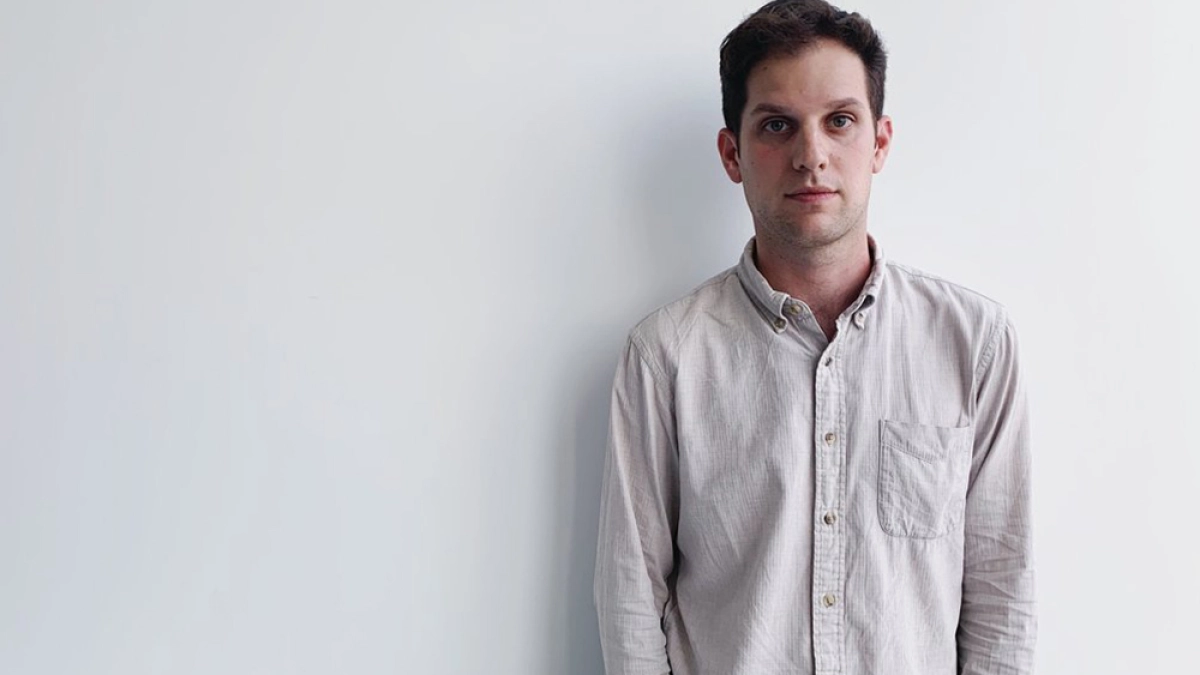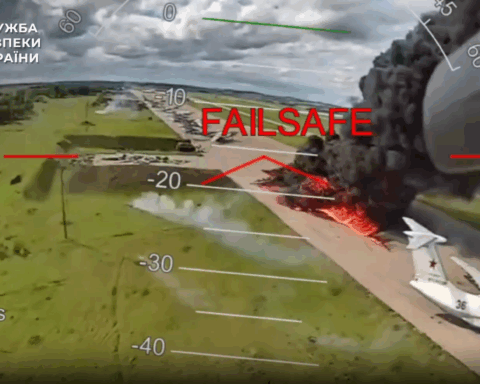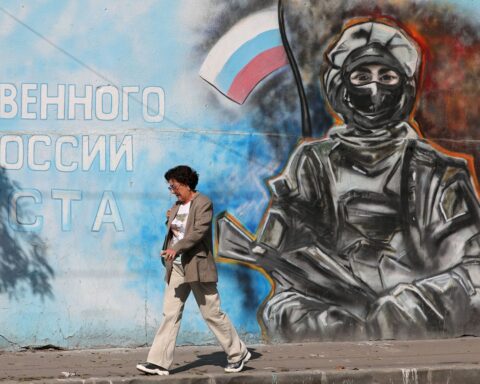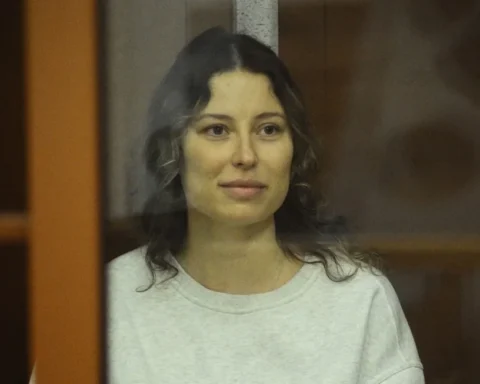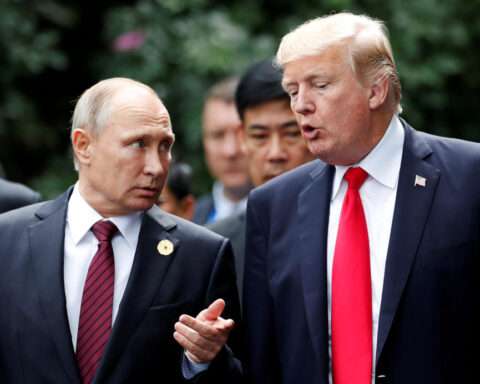A record number of journalists were imprisoned in 2022, a sign of weakening press freedom worldwide, according to the Committee to Protect Journalists.
There were 363 journalists detained in more than 30 countries last year, with the highest number of detainees held in Iran, China and Myanmar, according to the CPJ. The overall figure is nearly double from 2015 and the most since the press-freedom group began tracking imprisonments three decades ago.
The CPJ data is a snapshot of figures available as of Dec. 1 each year and doesn’t include journalists jailed and released throughout any given year.
The detention of Wall Street Journal reporter Evan Gershkovich in Russia last month is a recent example of the increasing number of attacks on journalists. Imprisoned journalistsSource: Committee to Protect Journalists2022:
“It’s gotten worse everywhere,” said Jodie Ginsberg, the CPJ’s president. “Even in countries that profess to have a free press and an independent press, journalists face an array of threats.”
Freedom of the press, or the right to report information without retribution, is guaranteed under law in most democracies and at least nominally in many other nations. Advocates say press freedom is under attack by authoritarian governments and being threatened in democratic countries.
Press-freedom organization Reporters Without Borders said a record 28 countries had “very serious” press-freedom situations last year, up from 21 in 2021. Journalists in those countries may be censored, surveilled or pressured against writing certain stories, according to the organization.
“We are clearly in a decisive decade for the future of journalism,” said Christophe Deloire, the secretary-general of Reporters Without Borders.
Mr. Deloire said there are several ongoing crises in journalism, including political polarization and politicians threatening reporters.
He said he is concerned Russia and China’s restrictive stance on the media will spread to other countries.
“They really want to create a new world media order,” he said.
Days after Russia invaded Ukraine last year, Russia passed a law threatening up to 15 years in prison for anyone publishing information authorities deem false about the invasion. Reporters Without Borders ranked Russia 155th out of 180 countries in its 2022 press-freedom index, in which No. 1 is the most free and No. 180 has the most press restrictions. Russia has regularly ranked low on the organization’s list during Russian President Vladimir Putin’s time in office.
Russia’s Federal Security Service detained Mr. Gershkovich last month while he was on a reporting trip in the city of Yekaterinburg. He is the first U.S. journalist detained in Russia on an espionage allegation since the Cold War, a charge the Journal and the U.S. vehemently deny. An espionage conviction in Russia carries a prison sentence of up to 20 years. It is rare for a court there to acquit a defendant.
Mr. Gershkovich, 31 years old, had been accredited to work as a journalist in Russia by the country’s foreign ministry at the time of his detention.
Western governments, global news organizations, press-freedom advocates and human-rights groups around the world have joined the Journal and the U.S. administration in demanding his immediate release. A Moscow court on Tuesday upheld his detention and denied him bail. Russian authorities have ordered that he be held in pretrial detention until May 29.
The State Department last week designated Mr. Gershkovich as “wrongfully detained” in Russia. The designation launches a broad U.S. effort to exert pressure on Russia. More than 40 countries signed a statement this month criticizing Russia over Mr. Gershkovich’s detention. Russia has said that it is acting in accordance with its own laws.
Autocratic regimes around the globe are increasingly likely to denounce journalists or put them in jail to keep them from disrupting propaganda machines, Mr. Deloire said.
“There is today a very fast competition between propaganda, rumors, hate speech and journalism,” he said.
In democracies such as the U.S., fewer citizens trust the news media and are instead getting information from politically polarized sources, Mr. Deloire said. Social-media sites don’t always have factual information.
Very serious Difficult Problematic Satis factory Good

World Press Freedom Index scores, 2022
In China, the government has strictly censored domestic news outlets and social media. Authorities there have imposed internet firewalls designed to prevent citizens from accessing foreign reporting that Beijing deems objectionable. The country in 2020 expelled more than a dozen U.S. journalists, including Journal reporters. Chinese authorities also passed a security law that limited broad media freedom in Hong Kong.
China and Iran clamped down on reporting about Covid-19, along with Belarus, India, Russia and other countries, according to watchdog groups. They said authorities in those places repressed independent reporting and arrested citizens who posted information on social media that contradicted official accounts.
More journalists were attacked or abused in China last year than in any other country, according to Reporters Without Borders. The organization tracks reports of abuse of journalists, which includes imprisonments, disappearances and killings. The group recorded one instance in the U.S. last year: The killing of Jeff German, an investigative journalist in Las Vegas, who was fatally stabbed by a local official after he reported on the official’s alleged abuse of office.
Reporters Without Borders considers each country’s number of abuses in its annual press-freedom rankings.
Iran has become an increasingly dangerous place for journalists, with 75 episodes of abuse recorded there last year, according to Reporters Without Borders. Iranian leaders began cracking down on antigovernment protesters last fall in an effort to silence them. The government detained two female journalists, Niloofar Hamedi and Elaheh Mohammadi, who had reported on the death of a 22-year-old woman, which sparked nationwide protests.
Myanmar and Turkey imprisoned the most journalists last year behind Iran and China, according to the CPJ. Myanmar has a long history of locking up journalists by invoking its colonial-era secrecy laws. Turkey has also passed laws that curb free speech.
Ms. Ginsberg, the CPJ’s president, said independent reporting is crucial to ensuring people don’t lose access to accurate information, particularly in places where press freedom is diminished.
“If we don’t have that information we don’t know how governments are spending our money, what decisions they’re making on our behalf,” she said. “It’s crucial to all of us.”


